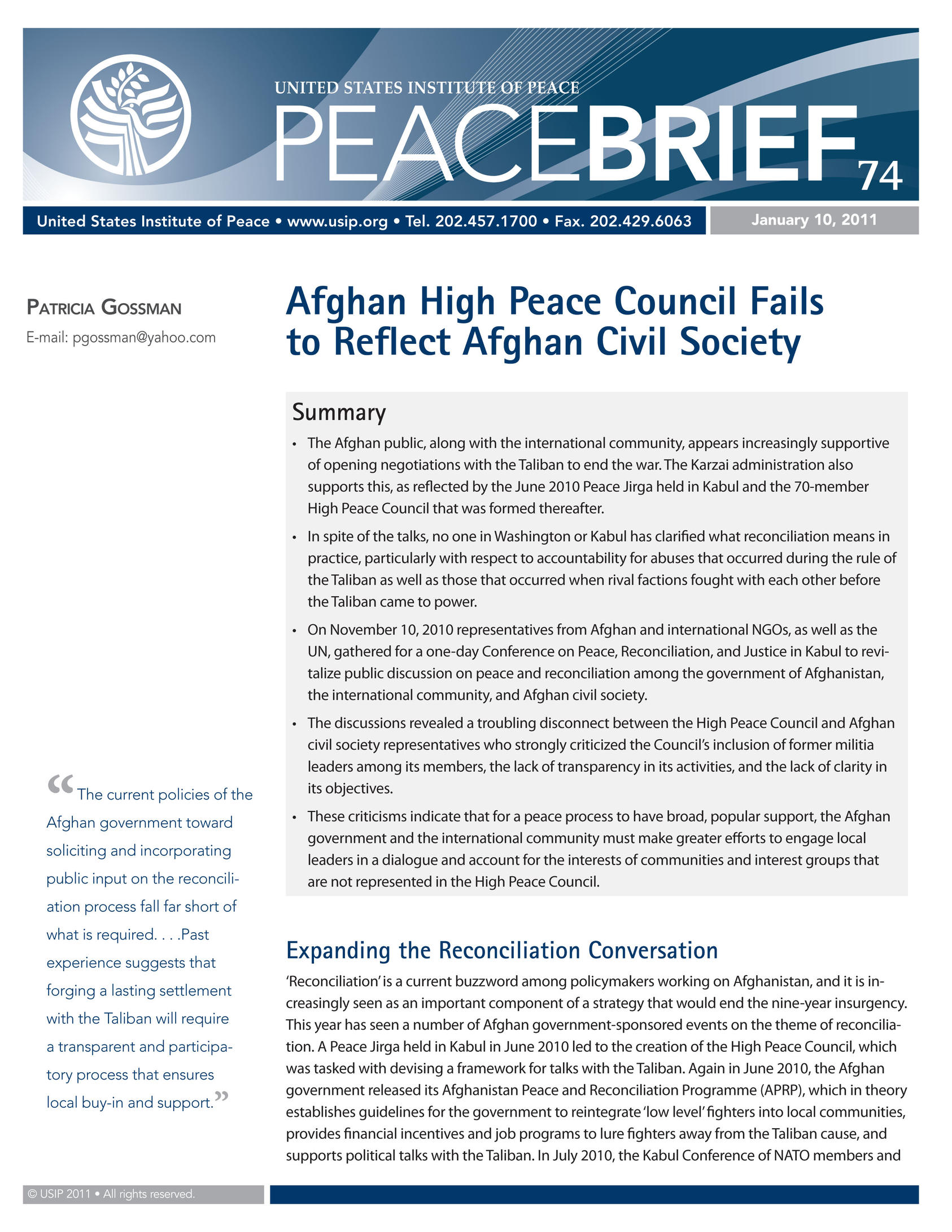Afghan High Peace Council Fails to Reflect Afghan Civil Society
The Afghan public, along with the international community, appears increasingly supportive of opening negotiations with the Taliban to end the war. This Peace Brief assesses the possiblities and challenges the Afghan government and the international community must consider to forge a lasting settlement with the Taliban. The author, Patricia Gossman, is a human rights expert who has investigated and reported on human rights violations in Afghanistan and elsewhere in South Asia for the past twenty-five years.

Summary
- The Afghan public, along with the international community, appears increasingly supportive of opening negotiations with the Taliban to end the war. The Karzai administration also supports this, as reflected by the June 2010 Peace Jirga held in Kabul and the 70-member High Peace Council that was formed thereafter.
- In spite of the talks, no one in Washington or Kabul has clarified what reconciliation means in practice, particularly with respect to accountability for abuses that occurred during the rule of the Taliban as well as those that occurred when rival factions fought with each other before the Taliban came to power.
- On November 10, 2010 representatives from Afghan and international NGOs, as well as the U.N., gathered for a one-day Conference on Peace, Reconciliation, and Justice in Kabul to revitalize public discussion on peace and reconciliation among the government of Afghanistan, the international community, and Afghan civil society.
- The discussions revealed a troubling disconnect between the High Peace Council and Afghan civil society representatives who strongly criticized the Council’s inclusion of former militia leaders among its members, the lack of transparency in its activities, and the lack of clarity in its objectives.
- These criticisms indicate that for a peace process to have broad, popular support, the Afghan government and the international community must make greater efforts to engage local leaders in a dialogue and account for the interests of communities and interest groups that are not represented in the High Peace Council.
About this Brief
Patricia Gossman is a human rights expert who has investigated and reported on human rights violations in Afghanistan and elsewhere in South Asia for the past twenty-five years. She is the founder of the Afghanistan Justice Project and has worked on human rights issues for USIP, the International Center for Transitional Justice (ICTJ), and Human Rights Watch. Gossman participated in the one-day Conference on Peace, Reconciliation, and Justice in Kabul on behalf of ICTJ.



